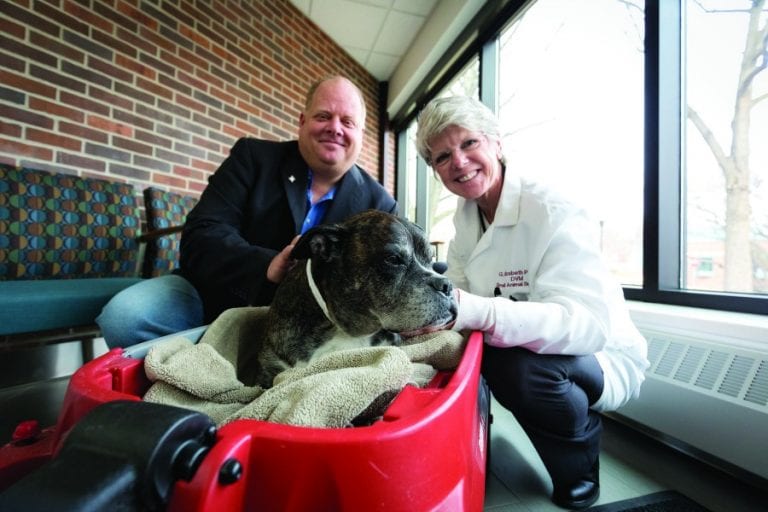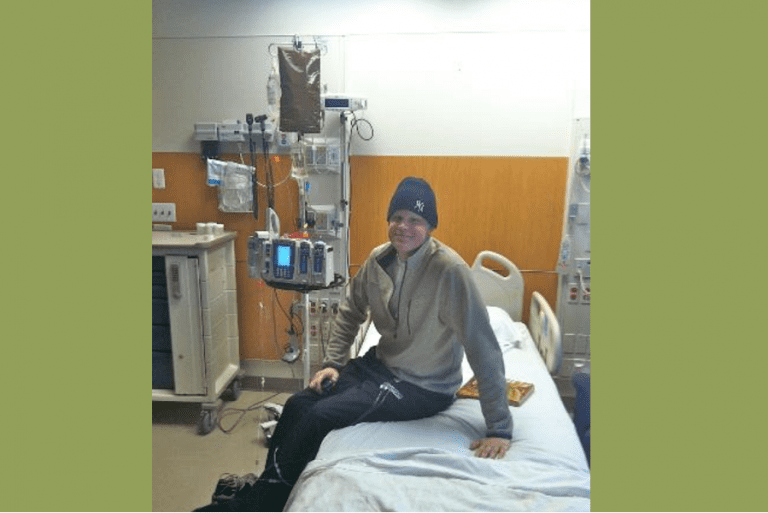Branden Moriarity, PhD, uses mouse models to identify cancer genes that cause osteosarcoma, a rare pediatric bone cancer, that primarily affects young adults. Additionally, osteosarcoma is a highly prevalent cancer in canines, with more than 50,000 cases per year in the U.S. Unlike some tumors, osteosarcoma is genetically complicated and difficult to understand using normal mouse models. Because of the complicated nature, researchers haven’t been able to fully trace the genetics of osteosarcoma—until now.
Working with David Largaespada, PhD, and using his new technology called Sleeping Beauty (SB) transposon mutagenesis, researchers have found the genes that cause metastatic osteosarcoma in mouse models. This is a monumental achievement in osteosarcoma research because it’s the first time researchers have been able to identify the over 200 genes that make up this disease. Further, the University of Minnesota’s osteosarcoma research group is currently generating massive amounts of genomics data from many human and canine osteosarcoma samples. “When we have all the osteosarcoma genomics data completed,” says Dr. Moriarity, “it will be the largest database in the world.”
Now, they can compare the misregulated genes in Dr. Moriarity’s mouse model with human and canine genetic makeup, giving them the opportunity to try new, targeted therapies in mice that they believe will be useful to treat human and canine osteosarcoma.
Eventually, doctors will be able to inhibit and treat these cancer genes, pointing to new treatment options and increasing survival rates for children with the disease. “The ultimate goal of my work is to find targets for new therapies to increase survival outcomes,” says Dr. Moriarity.
In fact, researchers have already found a potential treatment option that is used for other solid tumors and multiple sclerosis. Since the drug has already gone through several trial phases, it could be made ready for children with osteosarcoma more quickly.
How your donations have helped
Grants from the Zach Sobiech Osteosarcoma Fund helped fund Dr. Moriarity’s initial osteosarcoma research, giving him enough data on the disease to apply for and win an additional grant called the Career Development Award in Pediatric Research from the American Association for Cancer Research and Aflac Inc. A highly selective award, only one researcher is given the grant each year. Dr. Moriarity now has the funds to focus entirely on osteosarcoma research over the next two years. He plans to use the funding to find common and treatable genes in bone cancer. Within the next decade, he hopes to find many new biomarkers and targets in the disease’s genome to improve survival rates, especially for children who have the form of osteosarcoma that spreads throughout the body.
Your donations create research that reaches across the globe
In collaboration with researchers at St. Jude’s, the Albert Einstein College of Medicine and the University of Minnesota, Dr. Branden Moriarity’s findings will be published in one of the most high impact genetics journals in the world, Nature Genetics. The information shared in the journal has been six years in the making and will be shared publicly with scientists around the world.



